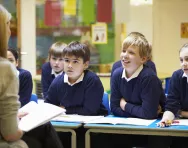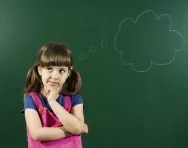Important update from TheSchoolRun
For the past 13 years, TheSchoolRun has been run by a small team of mums working from home, dedicated to providing quality educational resources to primary school parents. Unfortunately, rising supplier costs and falling revenue have made it impossible for us to continue operating, and we’ve had to make the difficult decision to close. The good news: We’ve arranged for another educational provider to take over many of our resources. These will be hosted on a new portal, where the content will be updated and expanded to support your child’s learning.
What this means for subscribers:
- Your subscription is still active, and for now, you can keep using the website as normal — just log in with your usual details to access all our articles and resources*.
- In a few months, all resources will move to the new portal. You’ll continue to have access there until your subscription ends. We’ll send you full details nearer the time.
- As a thank you for your support, we’ll also be sending you 16 primary school eBooks (worth £108.84) to download and keep.
A few changes to be aware of:
- The Learning Journey weekly email has ended, but your child’s plan will still be updated on your dashboard each Monday. Just log in to see the recommended worksheets.
- The 11+ weekly emails have now ended. We sent you all the remaining emails in the series at the end of March — please check your inbox (and spam folder) if you haven’t seen them. You can also follow the full programme here: 11+ Learning Journey.
If you have any questions, please contact us at [email protected]. Thank you for being part of our journey it’s been a privilege to support your family’s learning.
*If you need to reset your password, it will still work as usual. Please check your spam folder if the reset email doesn’t appear in your inbox.
What your child learns in KS1 RE
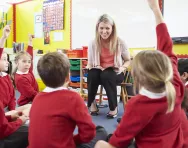
Religious education (RE) in primary schools is an oft-overlooked subject.
While it’s compulsory for all maintained schools to provide RE, it’s not part of the National Curriculum. This means that the Government doesn’t dictate what is taught, and there are no mandatory assessments in the subject at primary or secondary level.
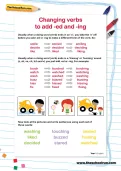
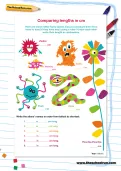
Start the Year 1 Learning Programme!
- Weekly maths & English worksheets direct to your inbox
- Follows the National Curriculum
- Keeps your child's learning on track
Non-denominational state schools, including academies and foundation schools, must follow an RE syllabus put together by the local authority. This is known as the ‘locally agreed syllabus’, and is compiled by a group of people including representatives of the Church of England, other religious groups, and teaching representatives.
The locally agreed syllabus must reflect the fact that Great Britain is traditionally Christian, while also taking into account the teaching and practices of other principal religions. Many local authorities follow the National Curriculum Framework for Religious Education (NCFRE): a non-statutory programme of study devised by the Religious Education Council of England and Wales, whose members include representatives of all of the UK’s main religions.
Faith schools can devise their own RE syllabus in line with the teaching and practices of their religion or denomination. This is drawn up by the governors. They can, however, adopt the locally agreed syllabus instead.
The National Curriculum Framework for Religious Education for KS1
The NCFRE says that in KS1, children should develop their knowledge and understanding of principal religions and worldviews. They learn to use subject-specific vocabulary, ask questions and begin to express their own views in response to what they’re taught.
Children are expected to:
- Recall and name different beliefs and practices, including festivals, forms of worship, rituals and ways of life, in order to find out about the meanings behind them.
- Retell and explore the meanings of some religious and moral stories, explore and discuss sacred writings and sources of wisdom, and recognise the traditions behind them.
- Recognise some of the symbols and actions that express a religious community’s way of life, looking at similarities between them.
- Ask and respond to questions about what individuals and communities do, and why, so they can identify what it means to be a part of a community.
- Observe and recount different ways of expressing identity and belonging.
- Notice and respond to some of the similarities between different religions and worldviews.
- Explore questions about belonging, meaning and truth so that they can express their own opinions and ideas in response, using words, music, art or poetry.
- Find out about and respond to examples of cooperation between people who are different.
- Find out about questions of right and wrong and begin to develop and express their own opinions.
Because the NCFRE isn’t statutory, schools don’t have to follow its guidance, although many locally agreed syllabuses use it as a starting point. All schools should make the content and objectives of their RE syllabus available for parents to look at.
KS1 RE lesson examples
Because there’s no nationally prescribed RE syllabus, lessons will look different in different schools. These are examples of some typical lessons and projects.
Pupils are visited by members of different religions (e.g. Christianity, Hinduism, Judaism) who talk about their main festivals and celebrations. They write a report of what their visitors told them.
Year 1 pupils find out about Diwali, the Hindu festival of light. They use clay to make diyas (the lamps used during Diwali) and design their own rangoli patterns (designs drawn on floors to encourage the goddess Lakshmi to enter the home).
Year 2 pupils retell stories from the life of Jesus using drama and perform them in an assembly or church service.
Year 2 pupils listen to meditative music, while thinking about the values that are important in society. They then respond by producing a piece of written work on one of these values, exploring why it matters.
Withdrawing your child from RE lessons
You have the right to withdraw your child from RE as a whole, or from certain lessons, events or celebrations. You don’t have to provide a reason for this. The school must make the content and objectives of the RE syllabus available so you can make an informed decision about whether your child should take part in lessons.






